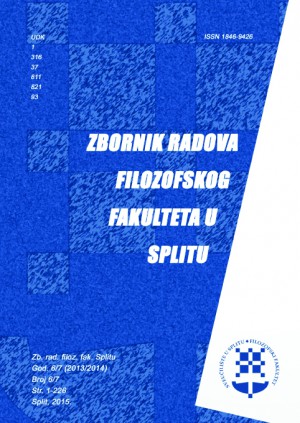CROATIAN AS A HERITAGE LANGUAGE IN CANADA
CROATIAN AS A HERITAGE LANGUAGE IN CANADA
Author(s): Ivana PetrovićSubject(s): Sociolinguistics, South Slavic Languages
Published by: Filozofski fakultet, Sveučilište u Splitu
Keywords: language contact; heritage language; minority language; Croatian-English bilingualism; Croatian; Canada;
Summary/Abstract: This paper examines some aspects of language contact in a Croatian-English bilingual speech community in Canada. The primary goal of the paper is to better understand language proficiency, language use, and attitudes of second-generation heritage speakers of Croatian. In officially multicultural Canada, the roles of Croatian and English are both complementary and distinct. Indeed, there is an obvious imbalance in the position and use of the two languages. Whereas English functions as a dominant or majority language (one of the two official languages), Croatian is a heritage or minority language. Although many studies have been conducted on different heritage languages, little attention has been paid to Croatian as an immigrant heritage language in Canada. Therefore, a closer examination of heritage language development and practices in this bilingual speech community is necessary. The research presented here is based on data from two sources: the Canadian census data and the data from a sociolinguistic survey conducted in the Croatian community in the greater Toronto area through a questionnaire. In order to describe linguistic practices in the community and create a linguistic profile of the second-generation heritage speaker of Croatian, the study focuses on the following issues: the acquisition of language skills in English and Croatian, the use of the two languages in everyday life, the learning of the heritage language, and attitudes towards maintenance of the heritage language.
Journal: Zbornik radova Filozofskog fakulteta u Splitu
- Issue Year: 2018
- Issue No: 11
- Page Range: 59-72
- Page Count: 14
- Language: English

